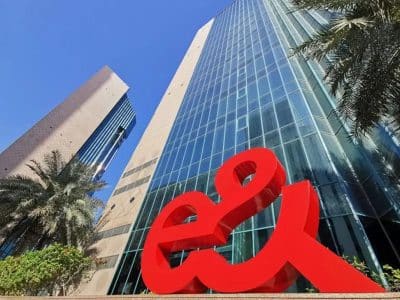Controversy abounds regarding the most appropriate terminology to address the population, which is the subject of this article. Some refer to them as ‘Arab-Israelis’ while others will agree that ‘Arab citizens of Israel’ or ‘Palestinian citizens of Israel’ are more accurate and culturally sensitive. The term ‘1948 Palestinians’ refers to what Palestinians call the Nakba or ‘catastrophe’ when Israel was founded, and the lines were drawn that created this population. Regardless of their name, this population has long been caught in a thorny debate over land, culture, history, and politics.
On a recent trip to the Dead Sea in Jordan, I encountered an Arab-Israeli (1948 Palestinian) woman from my home village, Tarshiha. As it turned out, many guests in the hotel were Arab-Israelis. They had made the trip to Jordan to attend a concert by Lebanese singer Ragheb Alama. Arab-Israelis want to form a deeper connection with their Palestinian, Levantine, or, more broadly, Arab origins. They will take every chance to integrate with that part of their identity.
Arab-Israelis are Palestinians whose ancestors remained within the borders of Israel when the state was created by the British Mandate in 1948 and were given Israeli citizenship. That citizenship was passed down several generations, and it now makes up around 21 percent of the population of Israel. They are effectively citizens of Israel by a historical-geographical coincidence. As succinctly stated in the Jerusalem Post, “wherever the grandparents ended geographically, either within territories that became part of Israel, the West Bank, or as refugees, it sealed the fate of their future generations.”
Arab-Israelis belong to various religions, including Sunni Muslim, Christian, and Druze. They often run the spectrum from refusing to recognise the state of Israel to seeing themselves as Israelis. Some are part of the Israeli armed forces, while others sympathise with and even fight for the Palestinian cause. One key distinction is that Arab-Israelis are not subject to mandatory military conscription unless they are Druze.
However, some opt to enlist in the military because of the numerous economic and social benefits or because they feel compelled by patriotic duty. There are options for “alternative service” as well, including working in hospitals, which is popular among Arab-Israelis. For those who don’t enlist, accessing certain social services can often be more complex, and they are more likely to face further stigmatisation.
There is discrimination in the Arab-Israeli population, even for those fully embracing their citizenship. Until 1966, Arab-Israelis were subjected to military rule and largely remained separated by de facto segregation throughout Israeli society. Today, the Israeli population is divided on the views of their fellow Arab citizens. As Eli Gottlieb, a researcher for George Washington University based in Israel, wrote in 2021, “where Israeli right-wingers see a violent betrayal of Israeli Jews by Arab citizens with whom they’ve coexisted for decades, Israeli left-wingers see a Jewish majority that hasn’t done enough to ensure equal rights for its Arab minority.”
Contradictions are prevalent throughout the legal and political history of Arab-Israelis as well. On the one hand, clear discriminatory measures like the nation-state law of 2018 removed Arabic as an official language and stated that “the right to exercise national self-determination [in Israel] is unique to the Jewish people.”
On the other hand, measures like a 2021 plan pledged over $9 billion to improve services like unemployment, housing, infrastructure, and healthcare for Arab communities. Unfortunately, one piece of legislation is not nearly enough to quell the systemic discrimination that Arab-Israelis face. As far-right Israeli leaders gain more influence, they increasingly try to depict Arab Israelis as extremists and threats with links to Hamas and other groups. The government, which approved that promising $9 billion worth of reforms, has also been accused of inciting hatred and violence towards the communities receiving the money.
Arab-Israelis were historically represented in Israel’s parliament, the Knesset. Even though Arab-Israelis have sat on the Israeli Supreme Court and served as mayors, judges, and ambassadors, among other diplomatic and civil service positions, most Arab citizens still have little say in the country’s policies or future.

Demands for better schools, lowering crime rates, and obtaining building permits to maintain infrastructure are ignored or denied. Nonetheless, some things are changing; with Arab parties holding 10 of the 120 seats in the Knesset and the presence of the United Arab List (UAL), the issue remains fraught. It remains to be seen how much success these parties will have moving forward.
The treatment of Arab-Israelis by other Arab states has changed over time and varies from country to country. Historically, Arab-Israelis were discriminated against and marginalised in other Arab countries due to their associations with Israel, which is viewed by many in the Arab world as an ‘enemy state.’ As a result, they could not visit countries in the region using their Israeli passports. Egypt and Jordan famously signed normalisation treaties with Israel in 1979 and 1994, respectively.
While there is still harassment that occurs, Arab-Israelis are somewhat more welcome in these countries, as evidenced on a micro level by the demographic of the guests at my hotel in Jordan, and typically can visit these countries to establish businesses and cultural connections.
In other countries like Lebanon, Syria, and Iraq, it’s a different story. Arab-Israelis continue to face severe restrictions on their travel. They cannot even enter the country without facing persecution or deportation. Arab-Israeli citizens who participate in popular Arab shows like Arab Idol have required Palestinian Authority passports to travel to countries like Lebanon for participation. They usually travel via Jordan, leaving their Israeli passports behind, and are forced to hide their “identity.”
The situation was also difficult for Arab-Israelis in the Gulf, although things have improved. The United Arab Emirates recently normalised relations with Israel when they signed the Abraham Accords in 2020, later followed by Bahrain, Sudan, and Morocco. This allowed many Arab-Israelis to relocate to these countries for better work opportunities or to live in peace, for the first time, among fellow Arab citizens.
Talking to a friend who recently made the move, she states that she is “finally living as an Arab” in Dubai and doesn’t have to “worry about discrimination at the airport or workplace” like she had experienced when living in Israel.
Encouraging better relations between Arabs and Arab-Israelis will require addressing historical grievances, promoting mutual understanding, and working toward political and social inclusion. Encouraging dialogue and engagement between Arab and Arab-Israeli communities through joint cultural and educational programmes, business partnerships, and people-to-people exchanges is an excellent place to start. It also means nurturing diplomatic engagement, conflict resolution, and joint efforts to address regional challenges.
We must encourage and support efforts to normalise the duality of the identity of Arab-Israelis that are actively interested in the historical circumstances that led to the creation of their minority community and opening channels for them to understand their cultural and historical background.
Improving relations between Arab-Israelis and other Arab citizens is no small feat. It will require a sustained and multi-faceted effort involving various actors and initiatives. While the challenges are significant, the potential benefits are substantial, especially for Arab-Israelis who want to see a concert to connect with a part of their familial and communal history.









